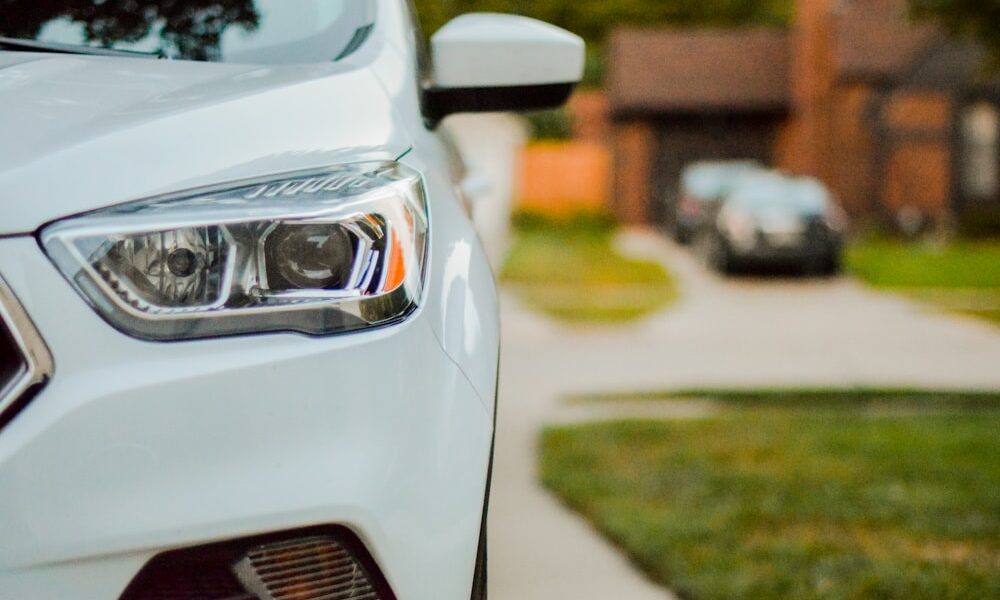Choosing the right material for your driveway can be a daunting task. With numerous options available, it’s crucial to understand the differences between them. Two popular choices are tar and chip and asphalt.
Each has its pros and cons, but how do they stack up against each other? Let’s delve into the details to help you make an informed decision for your driveway.
Understanding the Basics
What is Tar and Chip?
Tar and chip, also known as chip seal, is a surface treatment that combines a layer of hot liquid asphalt with a layer of crushed stone. The process involves spraying hot tar onto the existing driveway surface, then spreading and compacting a layer of stone chips over it. The result is a textured, rustic-looking surface that offers a unique aesthetic appeal.
What is Asphalt?
Asphalt, often referred to as tarmac, is a mixture of aggregates, binder, and filler. The aggregates are usually a combination of crushed stone, gravel, and sand. The binder, typically bitumen, holds the mixture together and is derived from crude oil. Asphalt is laid hot and then compacted to form a smooth, durable surface.
Pros and Cons of Tar and Chip
Advantages of Tar and Chip
- Cost-Effective: Tar and chip surfacing is generally less expensive to install than asphalt. This is because the materials and installation process are less costly.
- Low Maintenance: Once installed, tar and chip driveways require minimal maintenance. They are self-healing to some extent, as the small stones can shift and settle back into place.
- Aesthetic Appeal: The rustic, textured look of a tar and chip driveway can enhance the curb appeal of your home. It blends well with natural surroundings and offers a unique charm.
- Good Traction: The rough surface provides excellent traction, making it safer for both vehicles and pedestrians, especially in wet or icy conditions.
Disadvantages of Tar and Chip
- Shorter Lifespan: Tar and chip driveways typically have a shorter lifespan compared to asphalt, often lasting around 7-10 years.
- Surface Roughness: While the textured surface has its charm, it can also be a downside. The rough texture may be less comfortable to walk on and could be harder on bicycle and stroller tyres.
- Less Customisation: Unlike asphalt, which can be easily shaped and customised, tar and chip has fewer options for customisation and precise design.
Pros and Cons of Asphalt
Advantages of Asphalt
- Durability: Asphalt driveways are known for their durability and long lifespan. When properly maintained, they can last 15-20 years or more.
- Smooth Surface: The smooth, even surface of an asphalt driveway provides a comfortable and safe surface for walking, cycling, and driving.
- Easy Repairs: Cracks and holes in asphalt driveways can be easily repaired. Patching and sealing can extend the life of the driveway and keep it looking good.
- Customisable: Asphalt can be customised to fit various design preferences, including different shapes and patterns.
Disadvantages of Asphalt
- Higher Cost: The initial installation cost of an asphalt driveway is higher than that of a tar and chip driveway.
- Regular Maintenance Required: Asphalt driveways require regular maintenance, including sealing every few years, to prevent cracks and extend their lifespan.
- Heat Sensitivity: Asphalt can become soft in high temperatures, leading to potential deformation, especially in hotter climates.
Key Considerations for Your Decision
Climate
Climate plays a significant role in deciding between tar and chip and asphalt. In areas with extreme temperatures, asphalt may become too soft in the summer heat or too brittle in the winter cold. Tar and chip, with its rough texture, might perform better in such conditions.
Traffic
Consider the amount and type of traffic your driveway will endure. For heavy traffic or frequent use by larger vehicles, asphalt might be the better choice due to its durability and smooth surface. For lighter, residential use, tar and chip can be an attractive, cost-effective option.
Aesthetic Preferences
Your personal aesthetic preferences are crucial. If you prefer a more rustic, natural look, tar and chip will likely appeal to you. On the other hand, if you want a sleek, modern appearance, asphalt is the way to go.
Budget
Budget is always a key factor in any home improvement decision. Tar and chip is typically more affordable upfront. However, consider the long-term costs, including maintenance and potential repairs.
Installation Process
Tar and Chip Installation
- Preparation: The existing driveway surface is cleaned and prepared. Any necessary grading is done to ensure proper drainage.
- Application of Tar: Hot liquid asphalt is sprayed onto the surface.
- Spreading Chips: A layer of crushed stone chips is spread over the hot tar.
- Compaction: The stone chips are compacted into the tar using a roller, creating a solid, textured surface.
Asphalt Installation
- Preparation: Similar to tar and chip, the surface is cleaned and graded. A sub-base may be added for additional stability.
- Laying the Asphalt: Hot asphalt is poured onto the prepared surface and spread evenly.
- Compaction: The asphalt is compacted using heavy rollers to ensure a smooth, durable surface.
Maintenance Tips
Maintaining Tar and Chip
- Regular Sweeping: Sweep the driveway regularly to remove loose stones and debris.
- Re-sealing: Apply a fresh layer of tar and chips every few years to maintain the surface and extend its lifespan.
Maintaining Asphalt
- Crack Sealing: Seal any cracks promptly to prevent water infiltration and further damage.
- Regular Sealing: Apply a seal coat every few years to protect the surface and keep it looking fresh.
- Clean Spills: Clean up oil and fuel spills promptly to prevent staining and damage to the asphalt.
Conclusion
Both tar and chip and asphalt have their merits and drawbacks. Your choice will depend on your specific needs, preferences, and budget. Tar and chip offers a charming, cost-effective option with good traction and minimal maintenance. Asphalt, while more expensive, provides a durable, smooth, and customisable surface.
When making your decision, consider the climate, traffic, aesthetic preferences, and budget. By weighing these factors, you can choose the driveway material that best suits your home and lifestyle. Whether you opt for the rustic appeal of tar and chip or the sleek durability of asphalt, you’ll be making a choice that enhances the functionality and appearance of your driveway.




